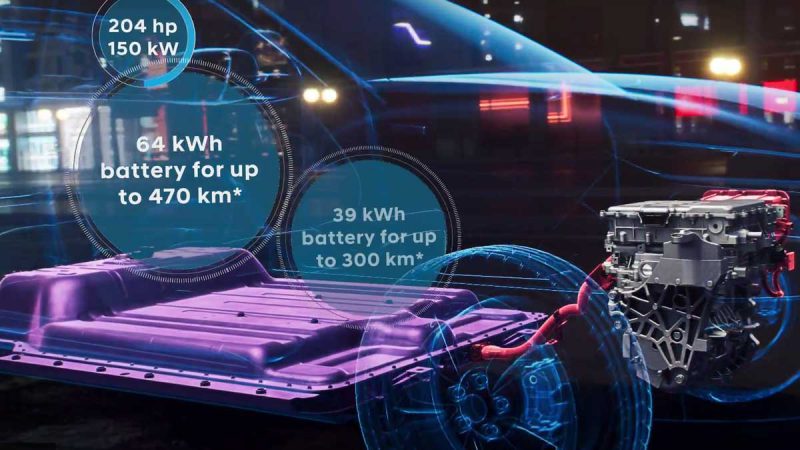South Korean carmaker Hyundai will begin making a purely electric SUV prototype this October, on a new all-electric architecture that the company has developed for its growing range of zero emissions vehicles.
While Hyundai currently has one electric compact SUV, the Kona Electric, on the market in Australia, it shares its architecture with that of its internal combustion engine (ICE) stablemate.
Now, it has been reported by Business Korea that it has ordered a number of parts necessary for the development of the new prototype, which it has given the project name of NE.
Selection of a supplier of batteries for the new models is also close to completion, sources told Business Korea.
The new purely electric SUV will be built on Hyundai’s Electric-Global Modular Platform (E-GMP), and the first prototype will be completed by December, sources in the industry told the Korean news site.
While further details about the new electric SUV’s specification are tightly held, it is understood that it will be around three to six months, during which time a number of prototypes will undergo rigorous testing, until it will be ready to be mass-produced.
The new electric-only E-GMP platform, which was discussed by Hyundai executives in January at CES2019, will allow the carmaker to design the architecture according to the best position for the battery.
“Hyundai Motor will provide customized functions for customers based on efficient space structure compared to existing internal combustion engine vehicles,” said Cho Won-hong, Hyundai’s VP of customer experience (translated from Korean).
It will also use what is touted as the world’s first integrated drive axle, which combines drive shaft and wheel bearing, according to a note on the website of Hyundai’s machinery arm, Hyundai Wia.
The new drive axle could be a major game-changer for the South Korean carmaker, restructuring the standard drive shaft for the first time in 100 years to greatly improve drive quality as well as reduce the weight of the vehicle.
While it is expected that the new electric SUV from the South Korean carmaker will have a range of up to 450km, one report from the Korean version of ZDNet says that the carmaker may aim for a range of over 500km, and that the new platform will also allow for faster battery charging.
Currently, the battery pack for the Kona sits right between the chassis – from the firewall where the engine compartment ends to the front of the rear axle, Hyundai Australia’s senior manager for future mobility Scott Nargar tells The Driven.
While Nargar could not yet share any further details of the E-GMP platform, he did indicate that Hyundai Australia does have its eye on bringing the electric only SUV here after it commences production.
“With popularity of SUVs and unprecedented interest in the electric Kona, it means we will keep our eye on the development of these vehicles and look at opportunities for Australia,” Nargar says.

With 44 eco models planned by the carmaker between 2020 and 2025, the development of the modular platform will assist in driving down costs of making electric vehicles, a strategy that is being undertaken by a number of carmakers.
The recycling of parts into new models has already been implemented, for example, in the case of the Kona Electric and hydrogen-fuelled Nexo, with both using the same electric motors, and Hyundai’s electric bus which carries six Kona batteries.

Bridie Schmidt is associate editor for The Driven, sister site of Renew Economy. She has been writing about electric vehicles since 2018, and has a keen interest in the role that zero-emissions transport has to play in sustainability. She has participated in podcasts such as Download This Show with Marc Fennell and Shirtloads of Science with Karl Kruszelnicki and is co-organiser of the Northern Rivers Electric Vehicle Forum. Bridie also owns a Tesla Model Y and has it available for hire on evee.com.au.

